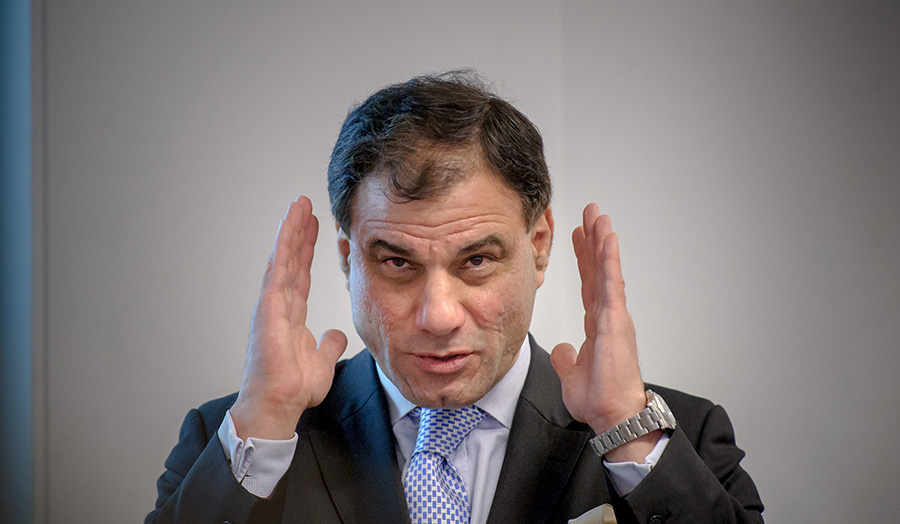London Metropolitan University alumnus and Cobra Beer founder Lord Bilimoria spoke out on the UK’s future during annual Limerick Lecture.
Date: 13/05/2015
Immigration, international students, and the upcoming election were the main themes addressed by entrepreneur Lord Bilimoria in this year’s London Metropolitan University Limerick Lecture.The cross-bench peer and founder of Cobra Beer received a diploma in accounting from a predecessor institution of London Met, and returned to the University to present the annual lecture, held at the Guildhall School of Business and Law in Moorgate.
Three decades of progress
Lord Bilimoria gave his account of “three decades of progress,” describing the UK in the early 1980s when he arrived as an international student, as being “economically and socially left behind.” He said he was “confronted with discrimination and prejudice,” while entrepreneurship was looked down upon.
Thatcherism and New Labour, he argued, had changed Britain into a country that “celebrated” ambition, enterprise and entrepreneurship, and the glass-ceiling ethnic minorities were trapped under was “well and truly shattered.”
Citing his own success story as an example, Lord Bilimoria directly linked the transformation of Britain’s economic progress to the achievements of its minority communities. However, this causality and the risk it faces is why Britain, Lord Bilimoria argued, is “closer than it has ever been to turning away from its long tradition of progress,” and is “tempted to choose the path of regression and isolation.”
Rise of UKIP
The rise of UKIP in the polls and “the ideology pedalled by Mr Farage is a terrible threat” to that progress, Lord Bilimoria warned. “Do not be fooled by those that tell you UKIP’s is an ideology of reasoned euro-scepticism; that all they are seeking to do is temper the bureaucracy of Brussels. They are the enemies of progress,” he said.
Value of international students
Lord Bilimoria highlighted the value of international students that contribute £14bn to the UK economy, help home students build valuable international business and diplomatic connections, and add to the vibrancy of UK institutions.
International students’ inclusion in the net migration target, was “arbitrary and economically illiterate,” Lord Bilimoria said. “This is the product of a Home Office bent on pandering to UKIP’s poisonous xenophobia while turning its back on the world’s brightest and best.”
Lord Bilimoria called for international students to be removed from the immigration statistics and targets set to recruit a larger share of the international student market. He also spoke strongly against the withdrawal of the post-study visa, allowing international students to stay in the UK after graduating to contribute to the UK economy and pay UK taxes. He called the rest of the UK’s immigration policy a “failure”, with the migration figures three times the size of its target.
Investing in higher education
Lord Bilimoria also made remarks on the state of higher education in the UK during the lecture, noting how the UK spends less of its GDP on higher education than the OECD and EU averages. Citing Labour’s policy to reduce tuition fees to £6,000 and the coalition government withdrawal of direct state funding, he expressed fear that “no one talks about investing more into higher education to make the country more competitive and increase our productivity.”
UK universities are the country's modern-day “jewel in the crown,” he said.
The 2015 Limerick Lecture took place on 23 April at London Met’s Guildhall School of Business and Law, in Moorgate.

